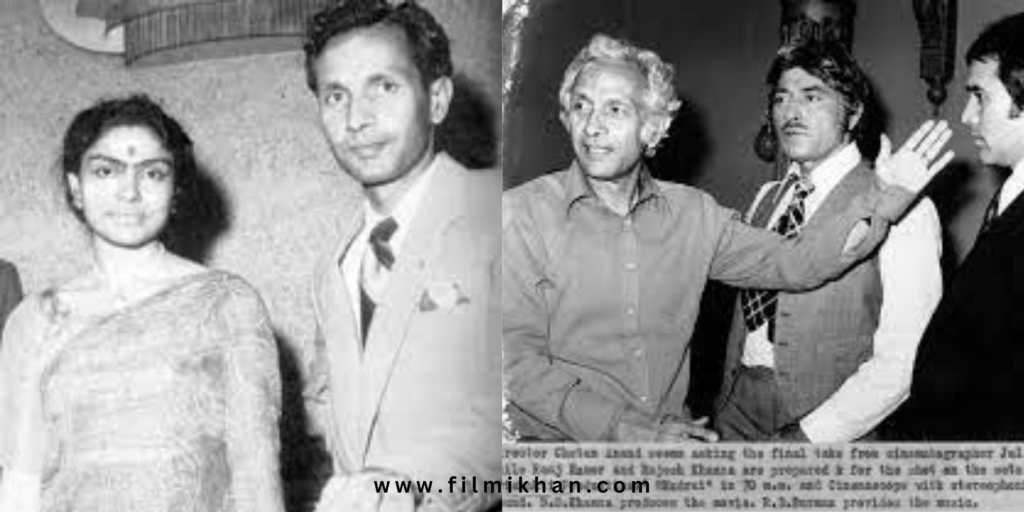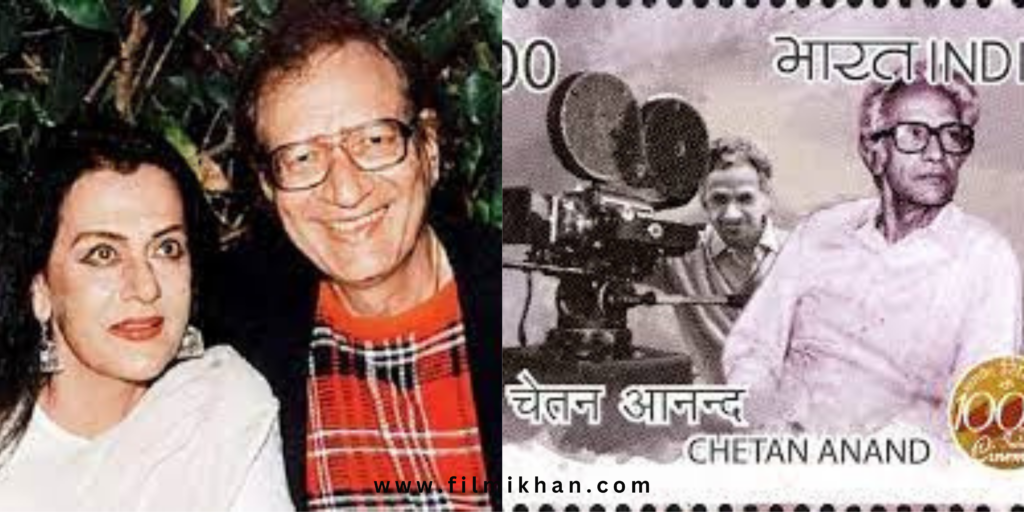
In the illustrious tapestry of Hindi cinema, Chetan Anand stands as a luminary, a visionary director whose creative brilliance left an indelible mark on the industry. He was born on January 3, 1915, in Lahore. Chetan Anand embarked on a cinematic journey that would redefine storytelling on the silver screen.
Early Years and Artistic Inclinations:
Chetan Anand’s artistic journey began with a passion for literature and theatre during his college days. His innate storytelling skills and flair for the dramatic soon drew him towards the enchanting world of filmmaking. In 1940s, Chetan Anand was preparing for Indian Civil Services (ICS) but he could not qualify.
He started teaching in a school, during this time he wrote a film script on king Ashoka, which he showed to his friend director Phani Majumdar in Bombay. Majumdar liked his writing skills and encouraged him to write more. Majumdar was making a film that time and casted him as a protagonist in his film Rajkumar, released in 1944. Chetan was also associated with the Indian People’s Theatre Association (IPTA) in Bombay.

Pioneer of Realism in Indian Cinema:
In an era dominated by escapist cinema, Chetan Anand carved a niche for himself by embracing realism. His directorial debut, “Neecha Nagar” (1946), marked a significant departure from conventional narratives, earning him the Grand Prix at the Cannes Film Festival in 1946, a historic moment for Indian cinema. The film was the first film for Kamini Kaushal and Pandit Ravi Shankar.
Navketan Films and Collaborations:
Alongside his illustrious brothers, Dev Anand and Vijay Anand, Chetan founded Navketan Films, a production house that would become synonymous with innovation and quality in the industry. Afsar was the first film produced by Navketan film starring Dev Anand and Suraiya which was moderate hit on box-office. It was followed by Taxi Driver and Aandhiyan both films were directed by Chetan under the banner of Navketan films.
Chetan Anand kept acting occasionally along with directing films. He acted in Humsafar made in 1957. Same year he directed two films Arpan and Anjali, in which he played lead roles too. He appeared in Kala Bazar, Kinare-Kinare, Aman, Kanch Aur Heera and Hindustan Ki Kasam, which he directed too.
Chetan Anand started his own production company named Himmlaya Films and he collaborated with legendary music composer Madan Mohan, lyricist Kaifi Azmi and actress Priya Rajvansh and created timeless classics such as Haqeeqat (1964), Heer Ranjha (1970), Haste Zakhm (1973) and Hindustan Ki Kasam (1973).
Chetan discovered ‘Super Star’ Rajesh Khanna from an acting competition and casted him in his film Aakhiri Khat, although G.P.sippy’s Raaz was Rajesh Khanna debut film. Film Aakhiri Khat was known for beautiful songs composed by Khayyam and penned by Kaifi Azmi.
Anand later directed Rajesh Khanna in the film Kudrat, based on the theme of reincarnation.

Exploration of War and Patriotism:
Chetan Anand’s cinematic canvas often delved into the complexities of war and patriotism. “Haqeeqat,” a poignant war film based on the 1962 China-Indian War, showcased his ability to infuse powerful narratives with emotional depth, earning critical acclaim and audience appreciation.
Legacy Beyond Direction:
Chetan Anand’s influence extended beyond the directorial chair. As a screenwriter and producer, he played a pivotal role in shaping the narrative landscape of Hindi cinema. His dedication to pushing creative boundaries and exploring new themes left an enduring legacy that continues to inspire filmmakers today.
Honors and Recognitions:
Throughout his career, Chetan Anand received numerous accolades, including the National Film Award for Best Feature Film in Hindi for “Haqeeqat.” His impact on Indian cinema was acknowledged with the prestigious Dadasaheb Phalke Award in 1997, a fitting tribute to a man who reshaped the cinematic narrative.

Final Curtain:
Chetan Anand breathed his last on July 6, 1997, leaving behind a cinematic treasure trove that continues to captivate audiences. His innovative spirit, commitment to realism, and ability to weave compelling stories ensure that Chetan Anand remains an eternal beacon in the annals of Hindi cinema.
Chetan Anand’s life and work encapsulate a cinematic journey that transcended mere frames, creating a tapestry of storytelling excellence that endures, reminding us that in the realm of Hindi cinema, he was not just a director but a maestro orchestrating symphonies of emotions on the silver screen.